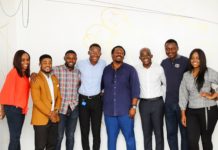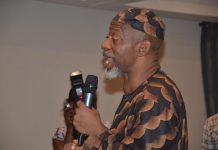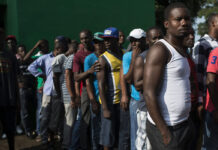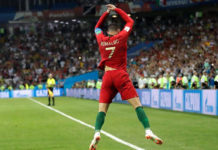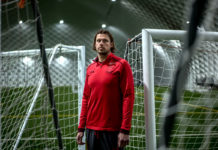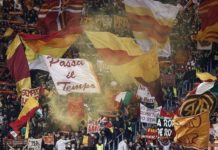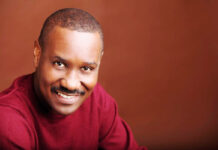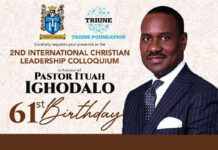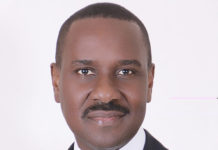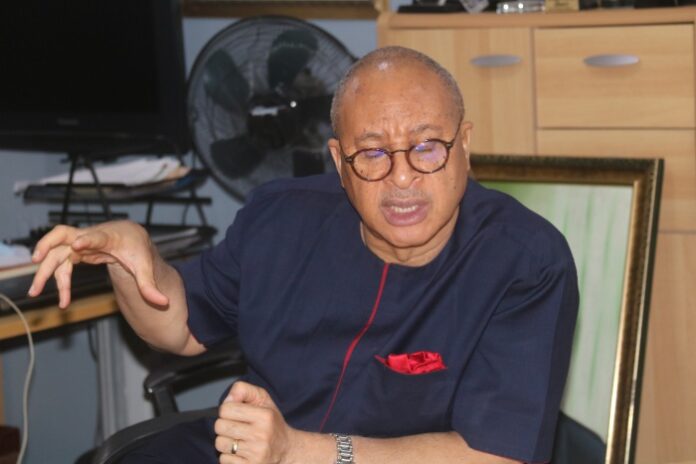- Sycophants, Lack Of Foresight Responsible For Buhari’s Abysmal Performance
- Jail Me If I Fail To Fix Power In Two Years As President
Prof. Pat Utomi, is a professor of political economy and management expert. A former presidential candidate, he is the founder of Centre for Value in Leadership (CVL) and the African Democratic Congress. He was an adviser to President Shehu Shagari and is a one-time Chief Operating Officer with Volkswagen of Nigeria. Utomi in this interview with Peter Adelowo and Olayiwola Edun, scored the Buhari’s administration low, highlighted the importance of intellects and capacity in governance, examined defects of rotational presidency and federal character, saying a true intelligent strategy for massive job creation is needed to bring the country out of the precipice.
How would you score the performance of the APC government in the last seven years?
Your question puts me in an awkward position. I will start by saying that before the government evolved, the Vice President, Prof. Yemi Osinbajo, used to come to my house to write the All Progressives Congress (APC) roadmap.
Obviously, it is an awkward position to be, to comment. My nature is to be candid which I have always been. This is part of the reason that they are scared of me. Performance has been terrible. The government has let down the people that passionately wanted it to be in power. The question is why has the government let down the people and why is it that the government has not been able to do what it is expected to do? A lot of things are covered up. But in general, this government has fallen far below expectation. Why did it happen? Unless a government is rooted in sincere commitment to serve the people, it would always be challenged.
Unfortunately what is happening in our country could be blamed on the traditional political class, including those they have incorporated who may not be typical traditional professional politicians. Because they are incorporated, they feel limited. Jointly, they managed to become disconnected from the people. They do not feel the pain that the people feel. Sycophants around them tell them that they are the greatest. They are just shouting, “you are the greatest people God ever created.” Those around power in Nigeria are deceivers. I have been around power long enough. “Your excellency, that thing you are thinking of is correct sir”. He has not said it. They will tell him that the thing you are thinking of is correct. If you are not prepared for power. If you do not have the mental discipline for power, it is easy to get lost. Secondly, there is a certain tragedy of the Nigerian political class as we know it. They define politics as the game of anything can happen, once you can hold on to power, you can make your friends happy. So the main concern of these people is to grab and hold on to power. Rather than how to serve the people. That formula is not sustainable. And we are seeing it being repeated every time. So that’s what happened from day one and I saw it within one week. I knew Buhari would fail and I said so. Those who manage to become his immediate inner people did everything to fence out anybody who could really think. Because they knew those people would prevent Buhari from responding to their whims.
I suspect I was one of the first people targeted. “Let’s put this guy away from this arena because he speaks the truth.” But look at how much damage they have done to him. I said somewhere that look, people are scrambling for position, power, presidency. I would rather be nothing than be what Buhari is about to end into. Because history would treat him so harshly that he would wish he was never the president of Nigeria. That is very sad, but that is what those people have brought to him. When Deng Xiaoping took the reins of power in China, China’s GDP per person was half of Nigeria’s. Deng said, “the direction of our party, the communist party, must be to bring intellect to the centre of how things are done in China. People of ideas, people of merit.” If you check records of 1978, look at the speeches he made, including the one he made to the Chinese Communist Party Congress, in December 1978, the focus was on how to make intellect the basis for moving China forward.
Check Buhari’s people, the first thing they did was to denigrate people of intellect. In doing that they prevented Nigeria from making the most rational choices that can come from strong intellectual engagement, debate, rationalisation of issues, and creative solutions of problems. There is such a lack of creativity in the way this government is run. And the consequence will be grave. For example, on the issue of electricity, it is not rocket science to fix Nigeria’s power. Give me two years, I am not boasting, and if it is still like this, jail me. Give me a free hand and give me two years, if the power remains like this, jail me. People do not know what they are doing in the area of power. They play the game and after all these years, we cannot get power. How can you develop an economy without power?
How would you describe the political climate in Nigeria ahead of the 2023 election with many contestants signifying intention to be the next President?
Everybody has the democratic right to aspire to whatever they want to be. The truth is that many people are encouraged because they can see the anger on the streets. People are fed up with APC and the People’s Democratic Party (PDP). So they figure this is open season, anybody can throw in themselves there, who knows what will happen? The truth is that it is about organising, but more importantly, it is about having a game plan. What are you going to do with power? Not just to have sirens blaring in front of you. Not just to have access to the public treasury. What are you going to do with power to affect the lives of people?
Some of us have been around. We were the concerned professionals who forced the army and pushed them until they backed out. When the army was leaving in 1998, we had a meeting to determine what we should be doing. Some of our members thought we were professionals who rose to civil duty as citizens based on the June 12 election. Thinking that Nigeria has eventually got it right in 1999, when Obasanjo became civilian President, some of us felt we should just go back to our businesses and allow the politicians to carry on. However, some schools of thought among us argued that we should move into politics, reminding us that back in Abacha’s days, we used to take a full page of The Guardian every other day and advertised the way the country should be run. Why don’t we then just move in and carry out all we are saying that this is how it should be done. It was a heated debate between us and our friends. People like Donald Duke, and the late Mohammed, voted for us to go into politics. Another group, with the likes of Tola Mobolurin, said we should return to our businesses. I signed with Tola Mobolurin and co. Did I regret my choice? Maybe.
What happened was that the politicians we were counting on to come back were not sure if the army were sincere about leaving. So, they did not move into the political space. Soldiers took off khaki and put on civilian dresses with their friends and moved into the space. Things were made worse by the fact that oil prices, which was $9 at the time of Abacha, went up to $100 under Obasanjo. Those fellows without any check had the treasury of Nigeria in their pockets. They also use money to erect a barrier of entering into politics. Nigeria was done for more or less since then. Quality of people who went into public life went from touts, to garage boys which began to have effects on our country.
So having deteriorated into that state, we began to ask ourselves: people who were in civil societies, those who were activists, what should we do? Should we roll over and play dead? Honestly, that would be the most terrible thing to do. That would be in negation of all we have fought for and stood by most of our lives. One thing that is very clear about this government and the ones just before it is that they had massive contempt for women. Nigeria has nearly the worst record in Africa of women participation in politics. The giant of Africa has less than 2 per cent of its political offices, legislative, executives filled by women. Rwanda is about 50 per cent.
Would you then say that it is time to have a woman President?
Keep that one aside. All I am saying is that the system currently denies them participation. How many of them are in local governments? How many of them are anywhere at all? The youth were indicted by the Presidency that they are lazy. The intellectuals have been dispossessed. So if you bring together the professionals, the intellectuals, the women and the youth, you have an alignment of the dispossessed, those this system has denigrated and looked away from. If you bring that coalition together, you create a new trust for a new organisational form of politics that can produce a leader or leaders that will act in the interest of the people; driven fundamentally by the needs of those people and which will remain accountable to them instead of this current arrangement of politics of politicians for politicians by politicians. That is the current arrangement in Nigeria.
Before 2019, former President Obasanjo then came out with the idea of a third force. Somehow at the end of the day, it was not strong enough to contend with APC. Just recently Kwakwaso, Dalung, Yakasai and others came up with the idea of The National Movement (TNM). Do you think that this is capable of wresting power from APC this time around?
You have to analyse the system more holistically. I personally have never liked the use of the language third force. Partly because we are assuming that there are two forces and that the third one is supposed to emerge. They are not two forces, APC and PDP are the same party. If you feel they are not doing you well in PDP, you defect to APC. If they doublecross you in APC, you run back to PDP where you started from. So, let us not confuse issues. There is one party of people of state capture, whose interest is to capture the state for their own personal interest. That is what APC and PDP are. Nobody should tell me stories because these are personal friends of mine. I have been with them from the beginning trying to convince some of them that we can build a government for our people. But I have seen that their hearts are hardened, that they do not believe in democracy. They do not believe in the people. They just think of their own self interest. What we need is an alternative. We are building an ideal platform of social political organisation that will serve the people and that I would like to call the alternative platform. But it is a big task that must accommodate any who cares to come so that in addition to these young people, women, the professionals and the intellectuals, there are people who are tired in APC, who actually may have more decent orientation. There are people who are tired in PDP, they are good people. In every place that is rotten, somebody good will exist there. When these people leave PDP and APC, and they come together and join this alternative platform, and come into this big tank, we will have a coalition of redemption, one Nigeria.
So, the Kwakwaso initiative is welcome, so long as everybody recognises that the centre to what we are looking for, is a government of character. It is the government of people for service driven not by personal ego. Nigerians are all over the world being celebrated for their contributions to those societies. So, how can a country that produces these kinds of people be the most miserable place to live on earth? Just because we have politicians who do not know what they are doing. That is not right.
You said that Buhari could not succeed because of the caliber of people that surrounds him. Would you say then that he had the ability to rule this country successfully?
You see, sentiments are one thing, capacity is another. When Deng came to power in China, he clearly had capacity, he found the best and the brightest. When Buhari came into power in this country, for six months he did not have a cabinet. Where in the world does that happen? Within hours of Biden being sworn in, he himself sworn in the first set of ministers. The cabinet of most serious people who win the presidency anywhere in the world is ready before inauguration. In the case of Buhari, for six months there was nobody to show any direction. After all that, we could see the kind of wishy washy cabinet he came up with.
So, that was enough signal for people to begin to think that the game was over. When they constituted the transition committee for the Buhari administration, they did not invite me to be part of it, yet the roadmap was written by me in my house with the Vice President. When the Obasanjo transition team was put in place in 1999, what Alhaji Ahmed Joda did was to call me, because he knew my capacity relating to the business. So, when he was made the chairman of this transition team, he looked at the team and called me, asking me “Where are you?” and I told him I was running a retreat somewhere in Abuja. He asked me to come straight to the Hilton. That was how I was incorporated by Joda, not by the APC, the party that I helped founded with my intellect and strength. Alhaji Ahmed Joda said to me before he died that he felt very sorry that we all seemed to have wasted our time. He felt a lot of pain because of the nature of the Buhari government. The naked truth is that we needed to examine motives. Is power for the purpose of revenge? The power that was taken away from me, I have to get it back. Is it power to serve? I would dare to look General Buhari in the face and he is my friend (I spent a lot of time in his company); I will look in his face and say: “Am not sure you looked for power for the right reason.” This is because it was not used to serve the people. In American politics, they asked, at election time, are you better off than four years ago? How many Nigerians can say they feel better off today than they felt in 2015. Very few Nigerians would say that they feel better.
Nigerians have been guided by religion and ethnicity during elections. To get it right come 2023, what must they do differently?
The most powerful army for elections are those people who are so passionate about the way the world should be. In all societies, these are the youths. There is always a saying that if at 18, you are not a socialist, something is wrong with your heart, but if at 40 you are still a socialist, something is wrong with your head. Because it is expected by then you are more rational, more clear in thinking than being emotional. Students have been the biggest victims of this government in the interest of a few rather than the majority. If you can mobilise these students, who constitute an army of more than a million people and they go down to the grassroot to educate the illiterates, you will change the course of Nigeria history. This must be the task for those who want to organise change. First you properly educate the students and then unleash them on the grassroots. If you wait for ‘jeun soke’ and co, then the National Union of Road Transport Workers (NURTW) would be the determining factor and that is not how you save a country. The fact is our country is almost descending into anarchy. Why is it near anarchy? Because we are not creating jobs and all kinds of people are available as cannon fodders for anybody making trouble. People who have not gotten education, who do not know the value of their own lives, let alone others.
So, we must develop a true intelligent strategy for massive job creation. It is easy, it is available, I can tell you. If you make me President of Nigeria, I am not boasting, we can create five million jobs in the first six months. I do not want them to steal my ideas, but I will still give a simple example. The world is in an environmental crisis. CNN ran a series ‘Planet in peril’. Temperature is rising everywhere, all kinds of problems, the world is concerned. The leaders met in Scotland last year in COP26, struggling with ideas on the table. The meeting is moving to Africa this year. COP27 is going to be in Egypt. If we come up with a great idea and I have come up with one to present in Egypt at COP27 on behalf of the Africa private sector. For every airplane that takes off in Europe, we would collect two or three dollars from every passenger to grow trees, so that would take care of the emissions they are putting out. That’s billions of dollars it would bring and we can use it to unleash an army of young people just on the environment. That is five million jobs on the ground. Our young people are immediately busy on the ground doing things and we are converting things to production processes. I feel sad that our lives are in the hands of people who cannot think out of the box. They are waiting for oil to be sold. Nigerians abroad remit more money to the country than they get from crude oil sales.
Youth are told that they are the leaders of tomorrow, but given the way power is structured in the country, what does it portend for Nigeria that old people are coming out of the word work to contest in 2023?
One of the youth can emerge as President if they organise themselves very well. But the thing is not just emerging as president. You have got to have capacity. While I am encouraging them to come out and run, they should know what it takes. We need to restructure the country so that leadership can go down. Where a local government chairman that knows what he is doing can transform a section of the whole country. Who cares, who is the President when lives are better in that local government because they have one thinking leader. So, there are many areas we can get good leadership and change our country beyond this behemoth in Abuja. Young people need to learn leadership. Finland has been taken over by young people, the prime minister is 37 and their cabinet is full of women under 40. I have no problem with young people running, but they must prepare themselves well. Emmanuel Macron was 39 when he became the President of France.
After we had said we would not participate in politics directly, in 1998, at the end of Obasanjo’s first term, we knew we were in serious trouble. So what should we do? That was why I ran for office in 2007. The Emir of Gombe once said when I visited his palace during my campaign in 2007: “Do not stop running because until you or somebody like you becomes the President of this country, this nation will not make progress.” I was shocked. This was the emir talking like this, am I in the right place. So, the emir went on to analyse why leaders fail in Nigeria. How they do not have capacity for work. They would hire technocrats who will prepare the documents. They would not even be disciplined enough to read it. Their friends would come around and they would discuss contracts, politics and then go away. No real work done. He said, “But at least, we are sure that if somebody like you becomes president, Nigeria will be better for it. You will understand what the technocrats are writing and put it to work.” He was a former permanent secretary.
What is your take on the rotational presidency clamour that power must go to the South in 2023?
You have to clarify a few fundamental principles. Rotation for the sake of rotation, all it does is provide people who do not really have capacity to do the work, an opportunity to say it’s my turn. Why is affirmative action such a challenge in Nigeria? First, how did affirmative action start? Some of the theoretical foundations of affirmative action were outlined in a book written in 1948 by a man called Thomas Kingsley. The book is titled: “Representative Bureaucracy”. In the book, Kingsley basically argued that government is more effective when those who government ask upon have a chance to be in the bureaucracy that they implement those things. So, it is important to bring in everybody into the bureaucracy. But that is not a licence to bring in the mediocre. You can still have merit as the basis and still have representation.
However, Nigeria is in a desperate situation because that became an excuse for nepotism. Places that argue they are underdeveloped, you will just go there and pick the most useless person you can find, whereas in that same community you can find someone who is well qualified, but the excuse of federal character is used to bring somebody nepotistically, who does not have the capacity. That is part of how we got into this mess in our country. Having laid the basis of affirmative action, I would like to argue that in today’s Nigeria, you can find the best everywhere. There is no part of Nigeria that can not produce good, quality people. But you have to make sure you find those people and not use the excuse of rotation to bring the most useless ones.
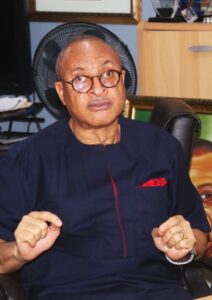 My point is in principle; let us get the best person. But if the best person is available in areas that have not been represented, then there should be moral justification to turn to those people first.
My point is in principle; let us get the best person. But if the best person is available in areas that have not been represented, then there should be moral justification to turn to those people first.
Are you running for presidency come 2023?
First of all, I will like to tell you the history of my being involved in politics and running for office.
I told you the first time I ran for national office in Nigeria. It was in 2007. Why did I run and how did I come to be involved? We saw what happened in 1999. It was really disappointing that what we expected was not what happened. Awolowo, Zik, Okpara, Amadu Bello were people of service that went overboard in trying to bring the best to their own people. There was a concept that two American scholars Robert Melson and Howard Wolpe examined in their book titled “Nigeria: Modernisation and the politics of communalism”. They called what was going on in Nigeria back in the 60s as competitive communalism, ethnic nationalistic groups competing for who will bring the most progress to their people. Obafemi Awolowo says ‘free education’. Zik responded in the east. They devised an approach that involves the communities, the missionaries and the government with education. The Igbo state union became the biggest owners of schools in the country. They built schools all over Nigeria mainly to educate the Ibos, but importantly anybody. In response to the advantages that the west was gaining, the east creatively became the biggest educators in the country.
This kind of competition reached certain extremes. Obviously, the failure to manage the extreme part of this competition resulted in the crisis that brought in the military and things got so much worse all the way down. Flowing from this history, we who were concerned professionals, assumed that those men of service, who the military ejected in 1966, who have now learnt lessons from the years of military rule, would return to serve their people well. As I said, they did not trust that the military rule would go away. The result was the kind of quality of leadership that emerged in 1999.
By 2003, we knew that we had a major crisis. So, the group of concerned professionals began to say what can we do. And then we agreed that we should find a political party and adopt it, and one of us should run. Primarily, not so much to win, because we did not think we were going to win. But the way things looked in 2007, if there were elections, all elections since 1999 have been rigged, 2007 was the worst. If in campaign Buhari would corner part of the North West, YarAdua corner part of the North West, North central under PDP, Atiku corner part of the North East or most of North East, take some places in the South, among others, nobody would have emerged a winner. The idea was that if we then ran, we could do two things. First, we would bring meaning to the ideas for the conversation rather than just you and my people, here is money and those kinds of things. The tapes are still there.
In 2007, I debated with Buhari in the presidential elections debate. We recognised that he had significant following, he may have had his deficiencies. We made up our minds that we could collaborate with him. And that was why during the debate, when they asked him questions and he was going off point, I helped him answer the question even though we were supposed to be debating. So, to build a coalition that could save our country was more important to us than who won a debate. But somehow, the desperation of the PDP that year made the election a joke. So, after that, I thought to myself that I have tried. The opposition tried to get together. I was the spokesperson for the opposition presidential candidate. The photographs are still there. Buhari was always sitting to my right and Atiku to my left at the press conferences. We thought we could create momentum to move forward. At the end I came to realise that was in futility. I made up my mind that I was not going to run again, I am not a professional politician. I would go back to my work and the many things that I do. Then Chief Anthony Enahoro sent for me. He said he wanted to build a coalition of progressives. So, I said, Chief, if you say so. I told him I was already tired. He retorted, “how can you be tired when we are here. I said ok sir. It was in the process he died and Chief Olu Falae took over the leadership of that effort. At one point, both Buhari and Atiku were coming to those meetings. One day, the Northern members suddenly broke away and formed the Northern Democratic Initiative (NDI). I asked them “what happened, I thought we were working together?” They said they did not want their people to think that we people in the South conscripted them. They said when they start their own, we would meet half way. Anyway they said they have made myself and Chief Olu Falae, the co-conveners of NDI. We showed up in Sheraton, Abuja where the launching of NDI took place.
All the usual games keep getting played. In the end, Chief Olu Falae said the way this thing is going, we need to float a party out of the movement we started and we called it The Social Democratic Mega Party (SDMP). One day, I went out of the country on a speaking tour, by the time I came back, I was told that the announcement had been made that I was the Chairman of the SDMP. Chief Olu Falae explained to me that we would need a credible person as the face of SDP and I represented that and so I would fill the position of the Chairman. I said ok, if it works for the people, there was no problem with me. One day, I travelled out of the country again, I came back only to be told that I was now the Presidential candidate of SDMP. I told them I do not have the money to run and I was told not to worry about it. Chief Falae explained to me that the formula they were thinking of is where there would be an alliance and all interested parties would go into one room, talk to one another and everyone would begin to step down until one person is left and they back that person. He said I was the only one that could best be trusted to manage that process. That was why I would be the Presidential candidate to be in the room to manage the conversation. So, that was how I became a candidate in 2011.
Our meetings were taking place in the Protea Hotel, Maitama in Abuja. For the final crucial meeting, General Buhari failed to show up. He has come to previous meetings with his chairman, Tony Momoh and his major aides at the time, Sule Hama and Buba Galadima. I had persuaded everybody that we should support Buhari to run. The general idea was if he is supported by the best people, no matter whether he was a genius or is average, if it is collective responsibility, we can get a great government going. The night I was to play the role of getting everybody to step down, General Buhari did not show up. I was very angry and said I was going back to Lagos. Chief Falae pleaded with me, sent messages. General Buhari confirmed he would come the next day. So I postponed the important meetings I had in Lagos. I went to the meeting. Shekarau was then the governor of Kano and was also running for President. He had to charter a plane to come from Kano so that he could get back to his campaign. He said to me I told you that he would do this.
When Chief Falae confirmed that Buhari was coming the next day, Shekarau agreed to fly back the next day from Kano. General Buhari did not show up. I got very angry. The following morning I came back to Lagos and announced an endorsement of Shekarau, who was the ANPP candidate. Why am I telling you all these stories? To show you that I have never woken up one day and said I like this thing, give it to me. I always serve, push others to do what is good for everybody, sacrifice yourself to achieve it. We all know who is who among us. Position has never mattered to me. I set up this Centre for Value and Leadership (CVL) to help young people to find cause, understand the values that would lead to progress, and to find role models. I struggled all my life to make myself available as a role model to young people. Imagine if my interest was to get rich, I would have been something else. But here I am struggling to pay school fees. So, I have hoped that in doing those things, young people would understand what is important in life. So am I tired, not at all. People think I am the one who can make that difference in terms of pulling everyone together. Nothing would make me say too much again. But I am not going to wake up and say “give me, I am the greatest since sliced bread. One of the major things we push in CVL is the concept of the leader who had no title. There is a Canadian leadership author called Robin Shammer. One of my favourite books of his is titled: “The Leader who had no title”. We had a series called the LWT series. We began to honour Nigerians who had made a difference without a title. Leadership is not about titles. I am willing to continue to strive to be a leader, title or no title. If a title has to come along to get the job done, so be it. But that is not what drives me.
What side should Nigeria take in the fight between Russia and Ukraine?
There is always the force of moral authority. The real question is that the issues are very nuanced, very deeply complicated. Much more that just meets the eye. From the point of just pure justice, it would seem that Putin is being high-handed and bully. However, in geo-politics, there is more than meets the eye. Russians did it to America before with Cuba, with the Cuban missile crisis. So, one can only pray that wisdom prevails. We are a voice in the non-aligned movement. Those in this movement back in the 60s, tried to bring together countries that were not in the heart of the Cold War to hold a third force perspective based on moral suasion. In some way, it is important that there be moral voice. But right now our play is neither here nor there, it is about rallying Africa. Because all of these things are about the second scramble for Africa. The way Africa is going with bad leadership, it would be recolonised and all the struggles, Africa would become involved as the place being recolonised by these countries. Unless we get leaders other than the ones running Africa today, the continent is set for recolonisation.


